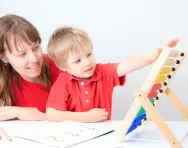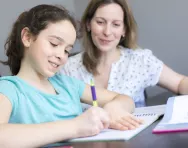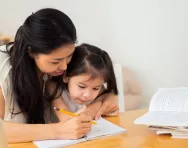Important update from TheSchoolRun
For the past 13 years, TheSchoolRun has been run by a small team of mums working from home, dedicated to providing quality educational resources to primary school parents. Unfortunately, rising supplier costs and falling revenue have made it impossible for us to continue operating, and we’ve had to make the difficult decision to close. The good news: We’ve arranged for another educational provider to take over many of our resources. These will be hosted on a new portal, where the content will be updated and expanded to support your child’s learning.
What this means for subscribers:
- Your subscription is still active, and for now, you can keep using the website as normal — just log in with your usual details to access all our articles and resources*.
- In a few months, all resources will move to the new portal. You’ll continue to have access there until your subscription ends. We’ll send you full details nearer the time.
- As a thank you for your support, we’ll also be sending you 16 primary school eBooks (worth £108.84) to download and keep.
A few changes to be aware of:
- The Learning Journey weekly email has ended, but your child’s plan will still be updated on your dashboard each Monday. Just log in to see the recommended worksheets.
- The 11+ weekly emails have now ended. We sent you all the remaining emails in the series at the end of March — please check your inbox (and spam folder) if you haven’t seen them. You can also follow the full programme here: 11+ Learning Journey.
If you have any questions, please contact us at [email protected]. Thank you for being part of our journey it’s been a privilege to support your family’s learning.
*If you need to reset your password, it will still work as usual. Please check your spam folder if the reset email doesn’t appear in your inbox.
What is a home education group?

No matter how sure you are that home education is the right choice for you and your child, going it alone can be a daunting step.
You might be worried that your child will become socially isolated, and miss out on the friendships they would have made at school. You might be concerned that you don’t have the ability to teach your child a full and varied curriculum. Or you might simply want to talk to other people in the same boat as you, who can give you support, reassurance and ideas.


Free home education planning pack & resources
- Guidance, templates and advice to get you started
- Practical tips from experts and parents
- How to establish a routine and set learning goals
Joining one of the many home education groups throughout the UK is a good way to tackle all of these issues. London alone has an estimated 60 home education groups – so wherever you are in the country, chances are you’ll find like-minded families keen and willing to share ideas, resources and support.
There are many types of home education groups, meeting a variety of different needs. Some are simply social, while others are formal, such as GCSE tutor groups. Some groups have a religious leaning, while others cater for specific interests, like forest school learning. Some groups organise one-off workshops such as stage make-up at the Victoria & Albert Museum in London.
What happens at a home education group?
Just as there’s a huge range of approaches to home education, so home ed groups come in many different guises. Typically, though, groups combine educational activities with opportunities to socialise with other home-educating families, and the programme is often driven by what members want.
The Otherwise Club is a community centre for home educators in London with between 40 to 60 families signed up. It provides support, activities, sports and drama events as well as outings and project groups – from history to Latin. ‘In our history group we’re currently working on the French Revolution, learning about it through debating, cooking and reading a novel,’ says Dr Leslie Barson, the group’s founder. ‘It’s about members creating what they want.’
Home education groups often organise workshops and short courses, as well as activities like sports and book clubs. Many involve outside speakers such as veterinary nurses, local authors, firefighters and historical re-enactors. They might also offer opportunities for volunteering in the local community.
Older children often attend home education groups for exam tuition, preparing for GCSEs or A levels in core subjects. Some groups also run vocational and practical courses, like hair and nail care, as well as opportunities to earn qualifications in subjects such as British sign language, drama and speech.
Home education groups meet anywhere from once a month to several times a week. Depending on their size, they might be held in a community centre, church hall or even someone’s house. Many also encourage outdoor learning through meetings in parks or educational day trips.
There’s often a small charge (a few pounds) to attend a home education group meeting, which helps pay for room hire, insurance, resources and activities. Some bigger, more formal groups charge an annual membership fee. Some groups are open to all ages, while others cater specifically for certain age groups.
What are the benefits of joining a home education group?
According to Dr Barson, the two main benefits of joining a home education group are the support you can get from other families, and the chance to take part in a range of activities. ‘Learning with others is one way of finding out about yourself,’ she says. 'It helps children develop their creativity and self-motivation.’
Jaki Parsons belongs to North Hampshire Home Educators, which has around 100 children meeting each week for group lessons. ‘Some people come to a home education group because certain subjects are too tricky to do at home or too expensive to do through a learning organisation, while some come just because their children like the company,’ she says.
‘Children often make lifelong friends in these groups, and children with differing needs and abilities are able to work together for mutual benefit,’ Jaki continues. ‘For parents, they can be a one-stop shop for practical help, and a place to discuss issues they may be having with other services such as headteachers or the local council.’
Spending some time at a home education group can also be helpful if you’re considering home educating your child but are not sure whether to take the plunge. ‘You can see how it works on a day-to-day basis in a variety of settings with different age siblings,’ Jaki explains. ‘You’ll get first-hand experience of how to put home education into practice.’
How to find the right home education group for you
Because there are so many different home education groups, finding one that suits you and your child is likely to be a matter of going along to a few sessions to test the water. Lots of families join more than one group so they get the benefit of more opportunities to socialise and a wider range of activities.
Education Otherwise, Ed Yourself and Home Education in the UK have online directories of home education groups. You might also find details of groups in your area by looking at community and library noticeboards, joining Facebook groups and asking other families who home educate.
If you’re in an area without any home education groups, online groups and Facebook communities can be a good alternative, offering support, encouragement and discussion.
‘Ultimately, not everyone likes home education groups, but unlike with school, you can dip in and out according to what suits you and your family at a particular time,’ says Dr Barson. ‘That’s the beauty of home education.’








